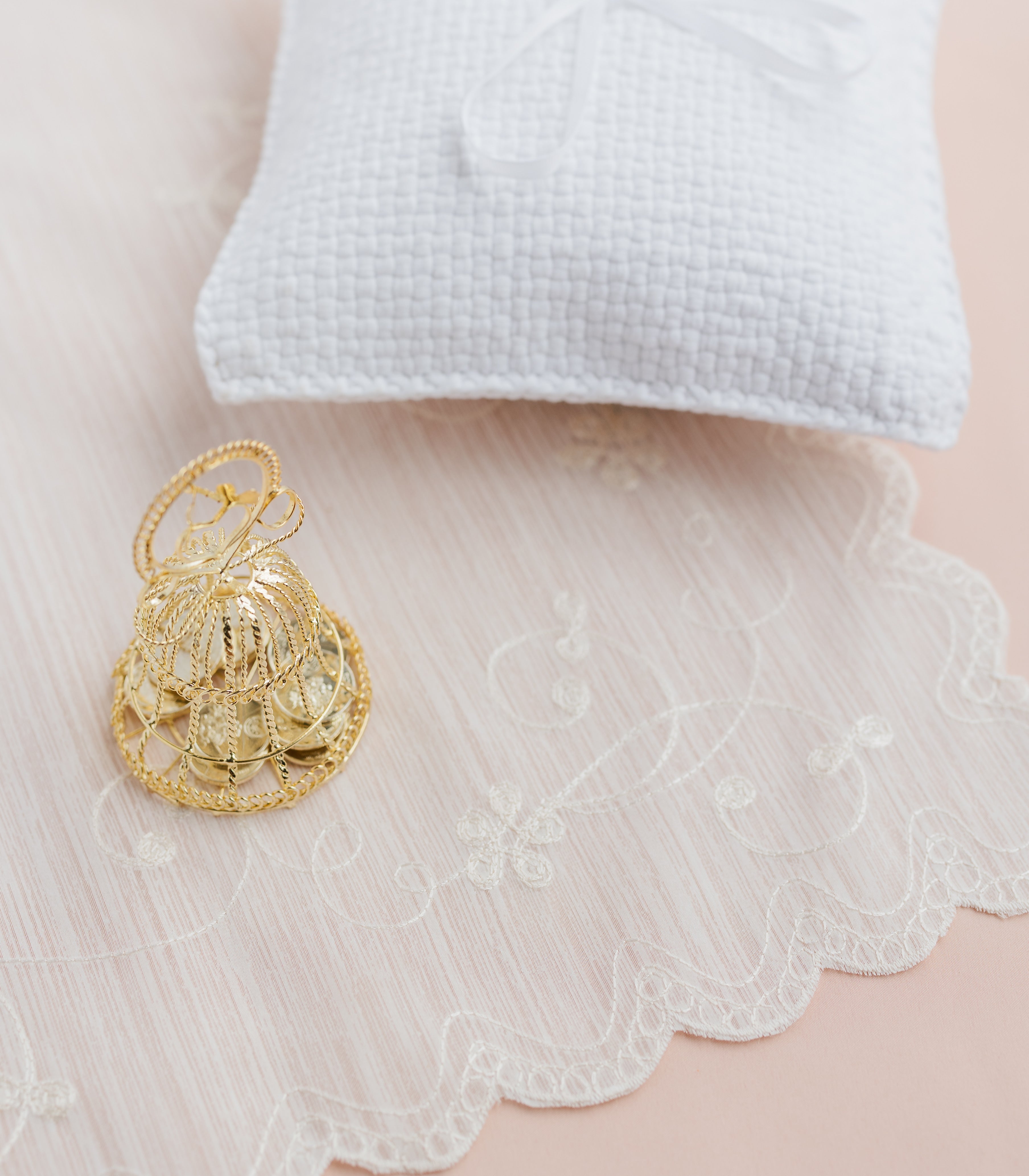If I’m being brutally honest, I don’t often feel good enough for love, much less Filipino courtship and dating traditions.
When I was a kid, I was very tied to the idea of traditional courtship. Thanks to my mom’s obsession with Jane Austen, I came to love the idea of being asked to dance or being swept away by flowery speeches.
But as I grew older, I started to rebel against what I heard most of my life: Never make the first move. Boys don’t like to be chased.
Sometimes, it feels like every failed relationship was because I was too awkward. Too headstrong. Too queer. Too much like myself.
Sometimes, I just miss the idea of being asked first.
In some ways, I’m still a hopeless romantic, but I can now see just how many of the tropes I romanticized as a kid didn’t leave room for people in my community.
In grappling with these aspects of my identity, I’ve decided to learn more, revisit, and reclaim Filipino courtship traditions.
Like me, you may be wondering if there’s a way to show our affection while celebrating our heritage. Can we separate romance from colonialism and heteronormativity? Read on.
The following are Filipino courtship traditions I’ve personally found interesting and some insights on how we might adapt them to modern times.
Even if everyone is only an instant message away, love letters will always bring romance to Filipino courtship.

There are real love letters and poems I’ve sent that I cut into paper hearts for a school project.
Love letters became a popular mode of courtship in the Spanish colonial period of the Philippines. Traditionally, a binata (young man) would write the letter and hand it off to the recipient’s loved one for delivery. The same person would relay the reply of the dalaga (young lady).
Naturally, this tradition, along with the platonic pen pal, became less common with advancing technologies and, eventually, the rise of the Internet.
Learning that love letters were common once upon a time feels very validating. I’ve initiated a handful of love letters in the last few years. Sometimes I get anxious that I’m “too desperate” or “too out there” for a girl, but many of my Filipina and non-Filipino friends have told me that knowing I do this feels empowering to them.
Besides, where is it written that love letters have to be mediated anymore? The timelessness of letter-writing means we in the present have the opportunity to subvert expectations. Direct correspondence can keep things straightforward while cultivating a slow burn type of romance.
Personally, I’ve yearned for more of that intimacy because having constant, instant access to each other does not always mean meaningful communication or a deep connection.
Balak (spoken word poetry) is a Filipino courtship tradition that invites you to let your feelings loose, off the page.
Originating in the Visayas region, balak is “an all-encompassing term for poetry written in any Cebuano dialect”. This includes spoken word poetry that was performed by a man wooing a woman. The intent was to evoke the depth or intensity of one’s passions through elaborate verses.
Only once a woman expressed mutual interest would they go on a date.
We can still incorporate balak when we woo, regardless of our gender or sexuality. Poetry has always been and continues to be a way to convey vulnerability with vivid imagery. In my own experience, spoken word poetry is all about whisking someone up in a feeling or a moment.
So an effective spoken word poem (romantic or not) never has to be over the top. It just has to be honest, and as far as I know, that’s always been key to a healthy relationship.
Likewise, harana is a Filipino courtship tradition that has you sing your heart out. Literally.
A classic Filipino love song asks, “uso pa ba ang harana?”—are serenades still in style?
Historically, harana took place in the earlier stages of Filipino courtship. A man would gather his friends under the bedroom window of the woman he was interested in and sing to her.
When I first learned of harana, I imagined myself in bed, trying to catch some sleep, while a group of men serenaded me from outside my window. The thought had me groaning inwardly.
That changed when I saw artwork depicting an intimate form of harana between two girlfriends.
Clearly, we can adapt this tradition to modern Filipino dating. We already do.
Anyone can serenade their partner, but it’s probably wiser to leave the musical numbers for when your relationship is more established. It can even be a way to honor your roots if you decide to propose.
I’ve always seen music as time capsules for our feelings. If at its core, harana is about articulating affection through song, then you can still make do even if you’re not terribly skilled with making music. Curating playlists and mixtapes is just as thoughtful.
For those of us who like the more cheeky side of Filipino courtship, there is pasaguli (riddle courtship).

In Palawan, one popular tradition was to decipher your in-laws’ feelings about a potential marriage through the exchange of riddles. Initially, this was an exchange between a potential bride and groom’s parents.
In some ways, we may have moved on from impressing our in-laws at every turn. However, banter is as attractive as ever.
Slide into anyone’s DMs and it’s clear that wit is still key and some folks still like to play coy. We might look at a particularly funny curation, use, or even creation of memes to impress our crush or partner in a similar way to pasaguli.
Hugot culture, for example, needs similar skills. In order to come up with devastating and relatable (because of their devastation) lines about one’s love life, you need an adept sense of creativity.
Personally, the funnier a meme or reply is in the “talking” stage of dating, the more likely I’ll be open to pursuing anything with the person. At this point, banter may as well be its own love language. Maybe honoring pasaguli looks like staying playful by inventing new ways to share your humor and wit.
Paninilbihan proved actions speak louder the words when it comes to Filipino courtship.

A few years ago, my friend’s boyfriend impressed her parents by coming over to help with chores and run errands. It was then I learned of paninilbihan, an increasingly rare tradition where a potential groom would perform acts of service for his partner’s parents to demonstrate his virtues.
When I learned of this tradition, the need to gain parents’ approval felt old-fashioned. Yet, my family is quite close so I would prefer that my future partner gets along with them. This isn’t the case for many of us and that’s totally okay.
We can perform acts of service for our partners and their loved ones anyway. Ideally, we don’t do this to “win” anyone over. (Honestly, the idea of winning someone over sounds like a conquest; it speaks to how love can still be a mask for power and control.)
Acts of service can be a simple way to demonstrate how we care and plan to care for our partner. And there doesn’t have to be multiple steps or stages for you to express your love if you don’t want there to be.
Many of these Filipino courtship traditions might feel obsolete, but it’s important to understand why that might be and how we can consciously renew them.
A few weeks ago, as I regaled them with my dating horror stories, my parents observed how different the dating landscape is now from their time. Thankfully, they admitted that while they see their traditions as easier, they can understand that things are just different now.
In our current environment, the instant gratification and high volume of information we’re faced with daily may make us yearn for the romantic ways of the past. I mean, I know I do.
But we have to examine why these traditions might not be as popular anymore. It goes deeper than technological advances. These traditions may alienate some of us.
Specifically, most of these practices prescribe heteronormative gender roles that exclude nonbinary and queer perspectives. They may also perpetuate the outdated and inaccurate concept that an ideal Filipina woman is only a passive recipient of affection.
When we look at these courtship traditions, it gives the sense that while women can lead their household, they can’t take charge in creating their own. This concept is ironic given how we are a fairly matriarchal society. Writer and speaker Fatima Measham notes that “Filipino girls are conditioned not only to be ambitious but to excel.”
To me, excelling means embracing our agency. The bottom line is we don’t have to participate in these traditions. But sometimes I get caught up in figuring out how to honor every facet of myself by engaging, or refusing to engage, with activities that I forget we can negotiate our identities.
The truth is if we choose to follow them, we don’t have to adhere to traditions so rigidly. Embracing our agency can also look like challenging the status quo.
I think back to how I’ve felt like “too much” with my love letters or initiating confessions. Why has my assertiveness and clarity felt so unattractive?
My own parents exchanged love letters for over ten years. I don’t want to feel shame about wanting what they had: an honest exchange of feelings. I shouldn’t have to feel that way.
Honestly, there’s something powerful about how today, we can connect directly and express ourselves freely, without chaperones or proxy. We don’t have to take part in courtship traditions to delight anybody but ourselves and our partners—not their parents, or their family, or their friends. That can come later.
It’s easier than ever to look at these traditions and see the possibilities for reinvention.
Giving these traditions new life by adjusting and making them feel more like us can help us celebrate our heritage and honor our love.
Do you love words and happen to be in love? Write that letter! Do you best express yourself through spoken word? Go for it! Want to serenade your partner? Why not? Need an outlet for your riddles and feelings? This is your sign!
Cover photo by Markytour777.
Have you successfully wooed someone into walking down the aisle with you?
Congratulations! Check out our guide to the candle, cord, coins and veil to incorporate your Filipino heritage to the wedding ceremony. Sign up below.
Mikaela Lucido

Mikaela Lucido was born in Manila, Philippines and lives in Mississauga. She studied Creative Writing & Publishing at Sheridan College. Her work has been featured in Savant-Garde Literary Magazine, post ghost press, Gothic Tales of Haunted Futures, and Augur Magazine. She is a first reader for Savant-Garde Literary Magazine. Find her on Twitter (@LucidoMikaela) where she is often live-tweeting about Taylor Swift, superheroes, or mental health.



Leave a comment